SNVS128L March 2000 – December 2023 LP2982
PRODUCTION DATA
- 1
- 1 Features
- 2 Applications
- 3 Description
- 4 Pin Configuration and Functions
- 5 Specifications
- 6 Detailed Description
- 7 Application and Implementation
- 8 Power Supply Recommendations
- 9 Layout
- 10Device and Documentation Support
- 11Revision History
- 12Mechanical, Packaging, and Orderable Information
Package Options
Mechanical Data (Package|Pins)
- DBV|5
Thermal pad, mechanical data (Package|Pins)
Orderable Information
7.2.3 Application Curves
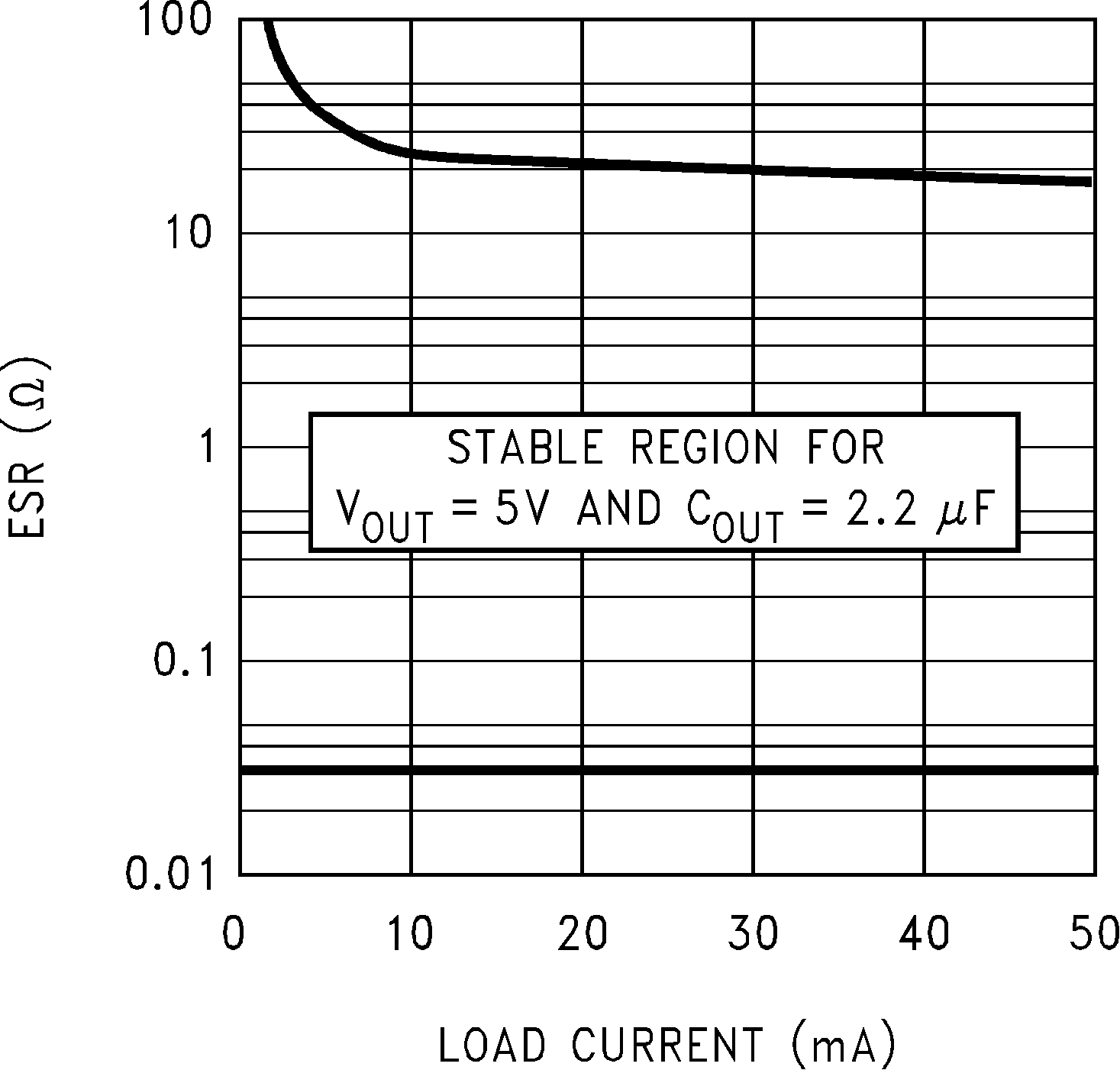
| VIN = 6 V |
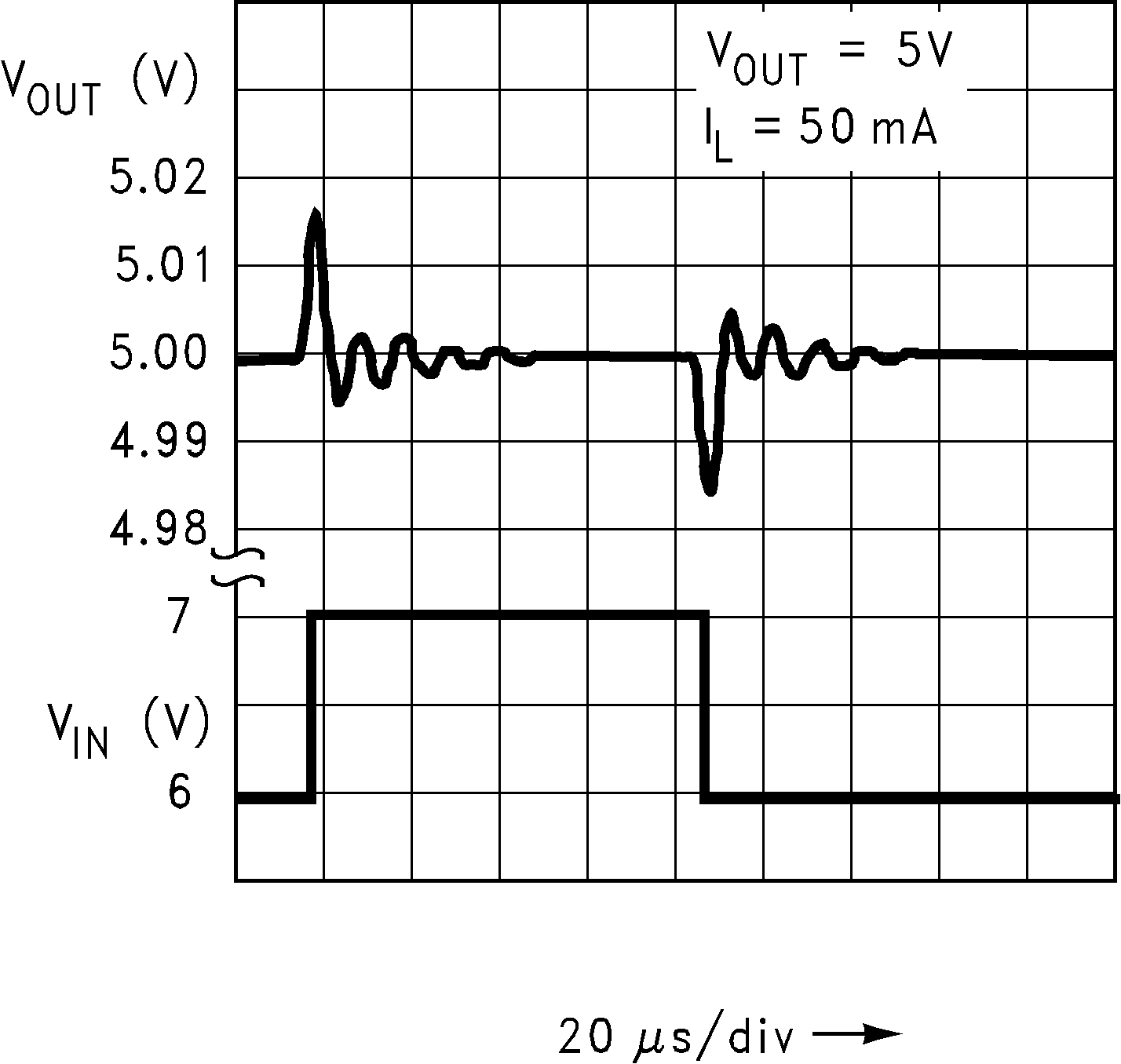

| VOUT = 3.3 V, ΔVIN = 1 V, IOUT = 50 mA, dV/dt = 1 V/μs |
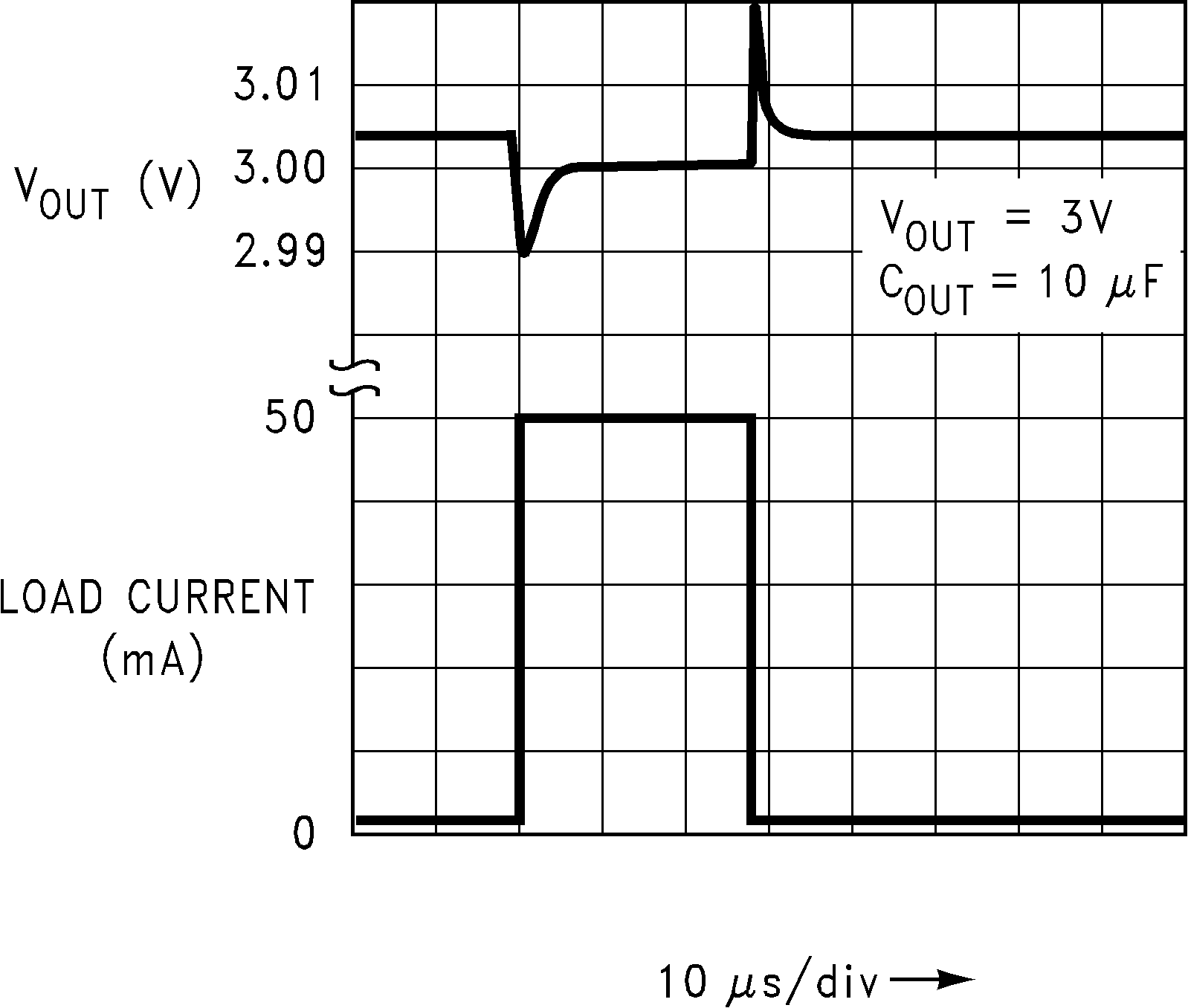
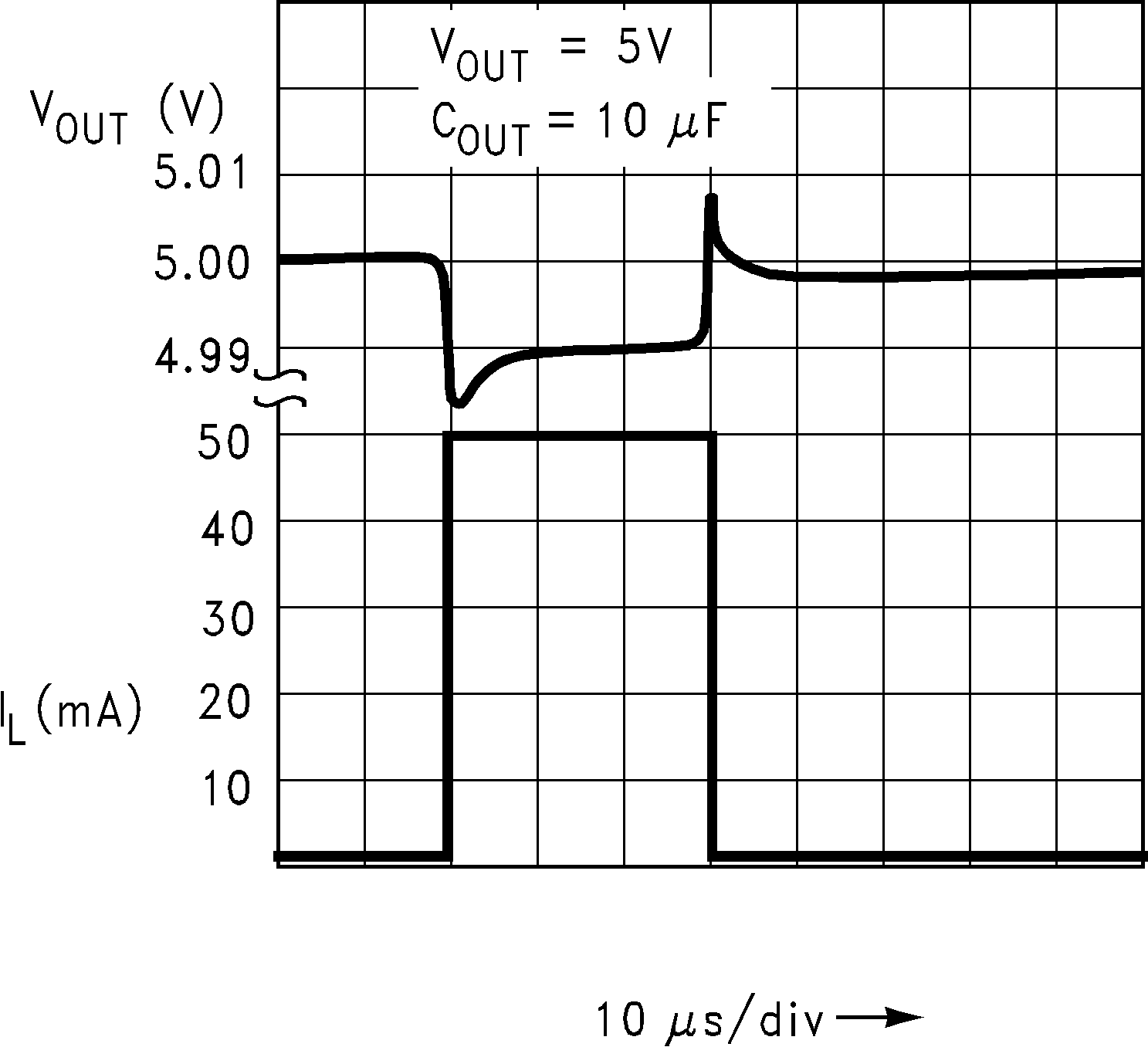
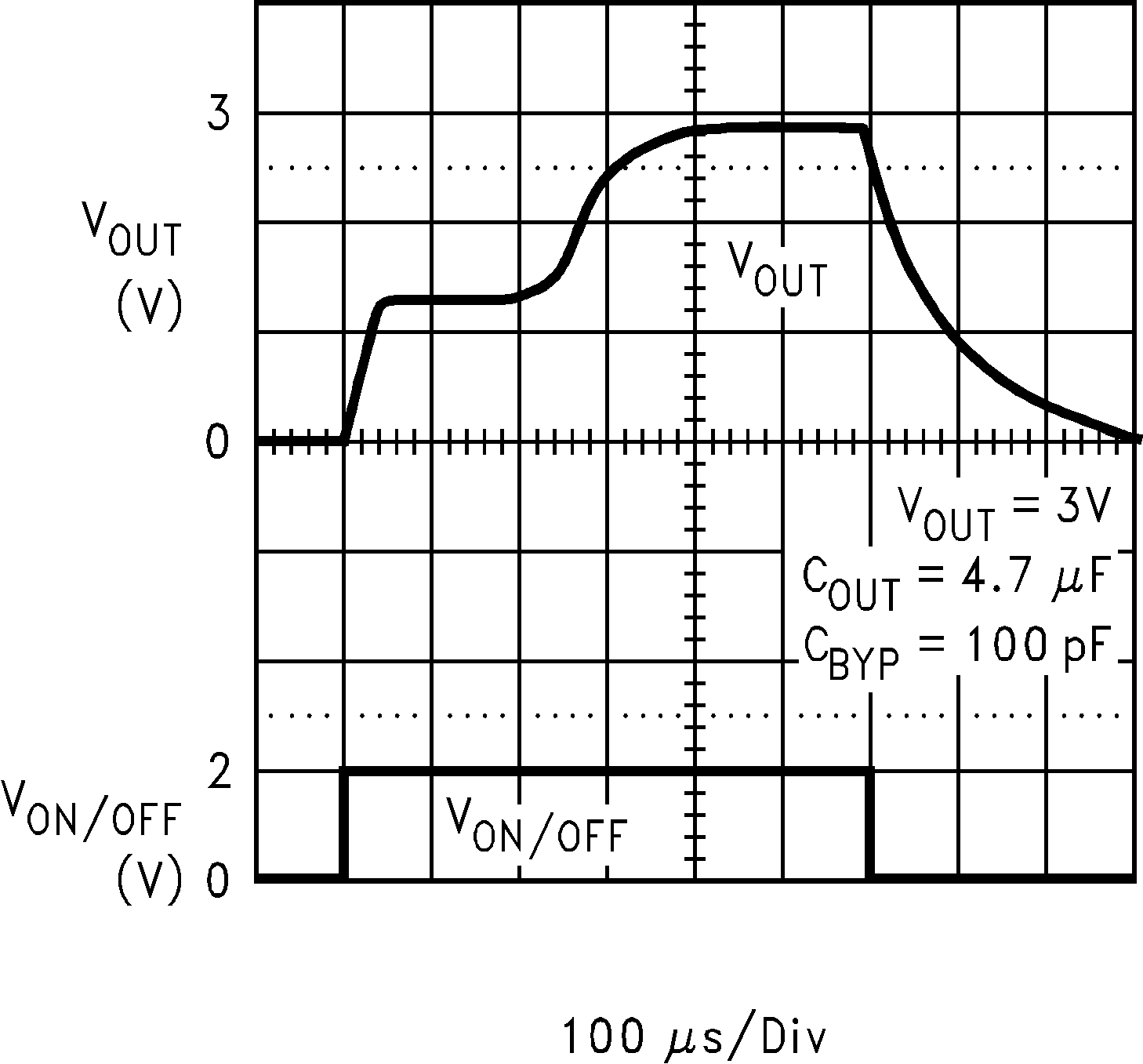
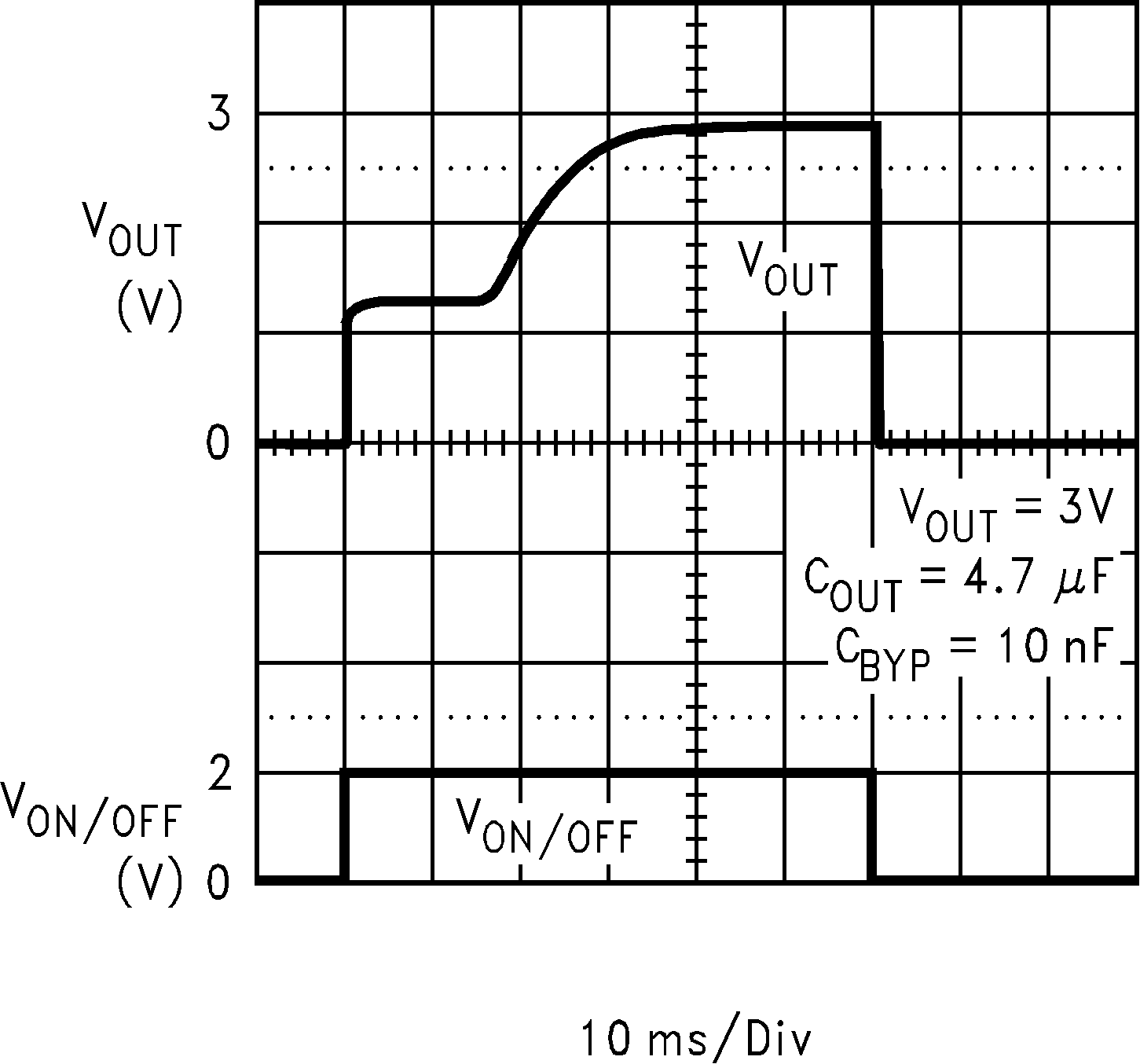

| Cbyp = 0.1 nF |
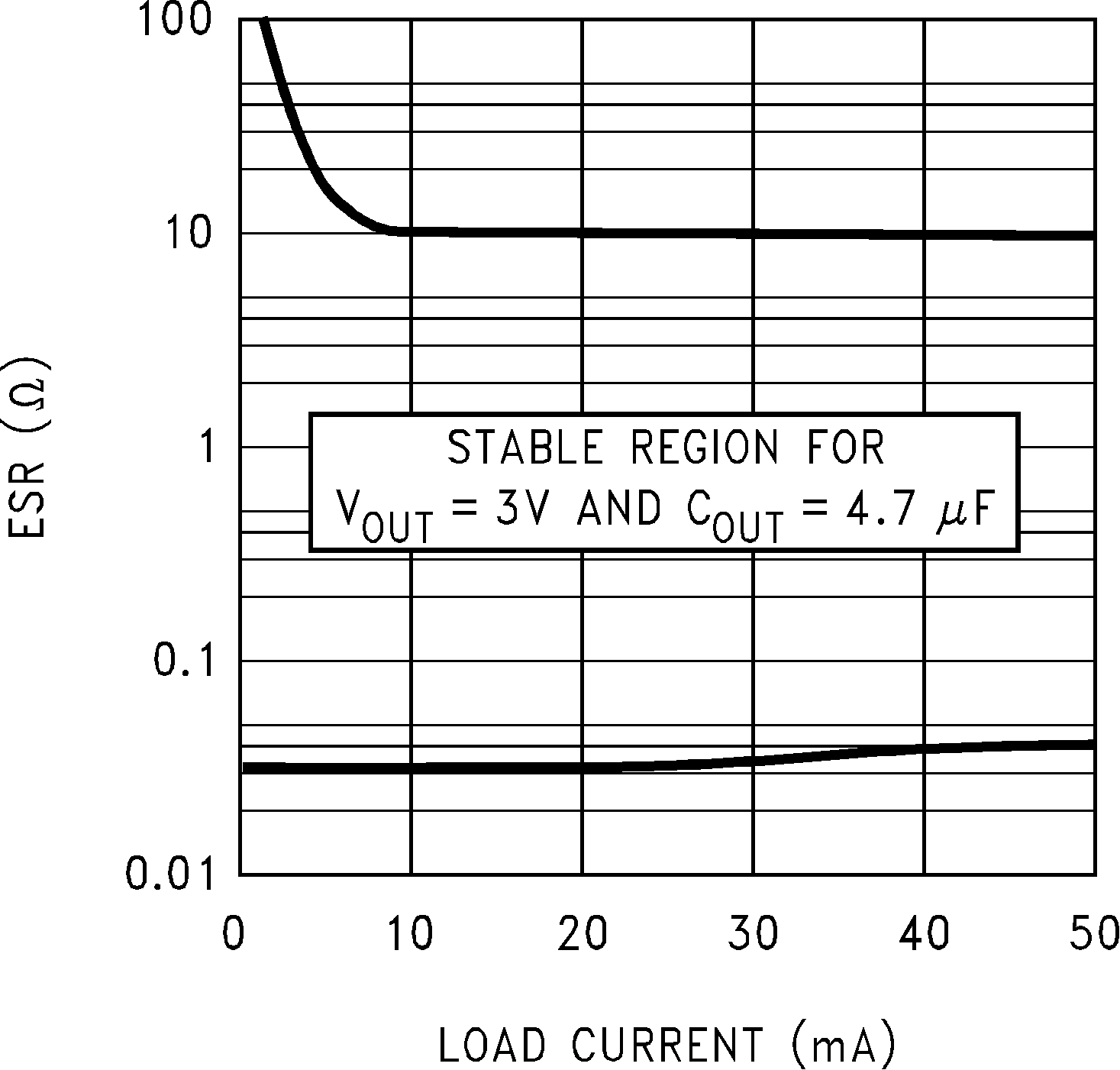
| VIN = 4 V |
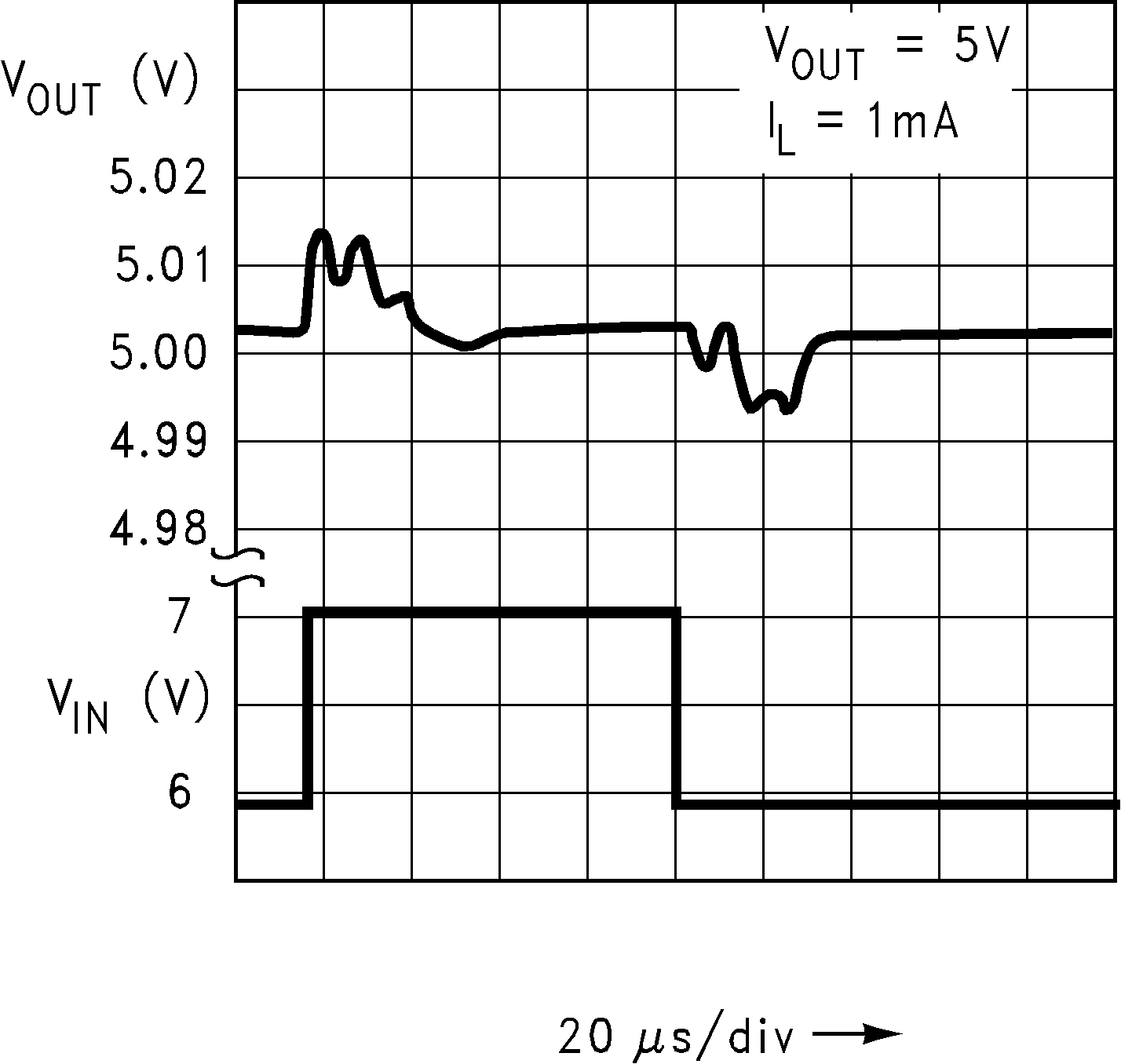
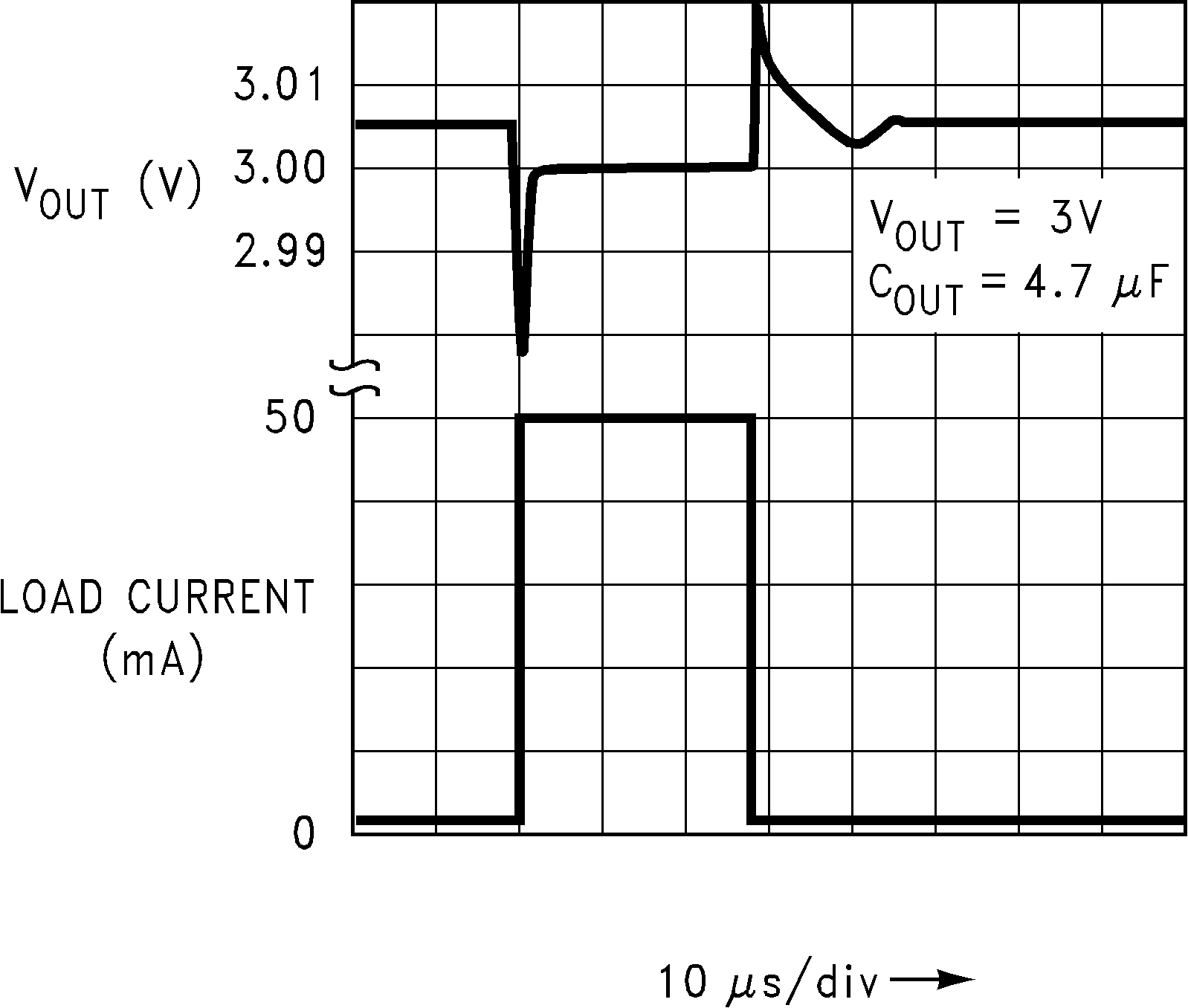
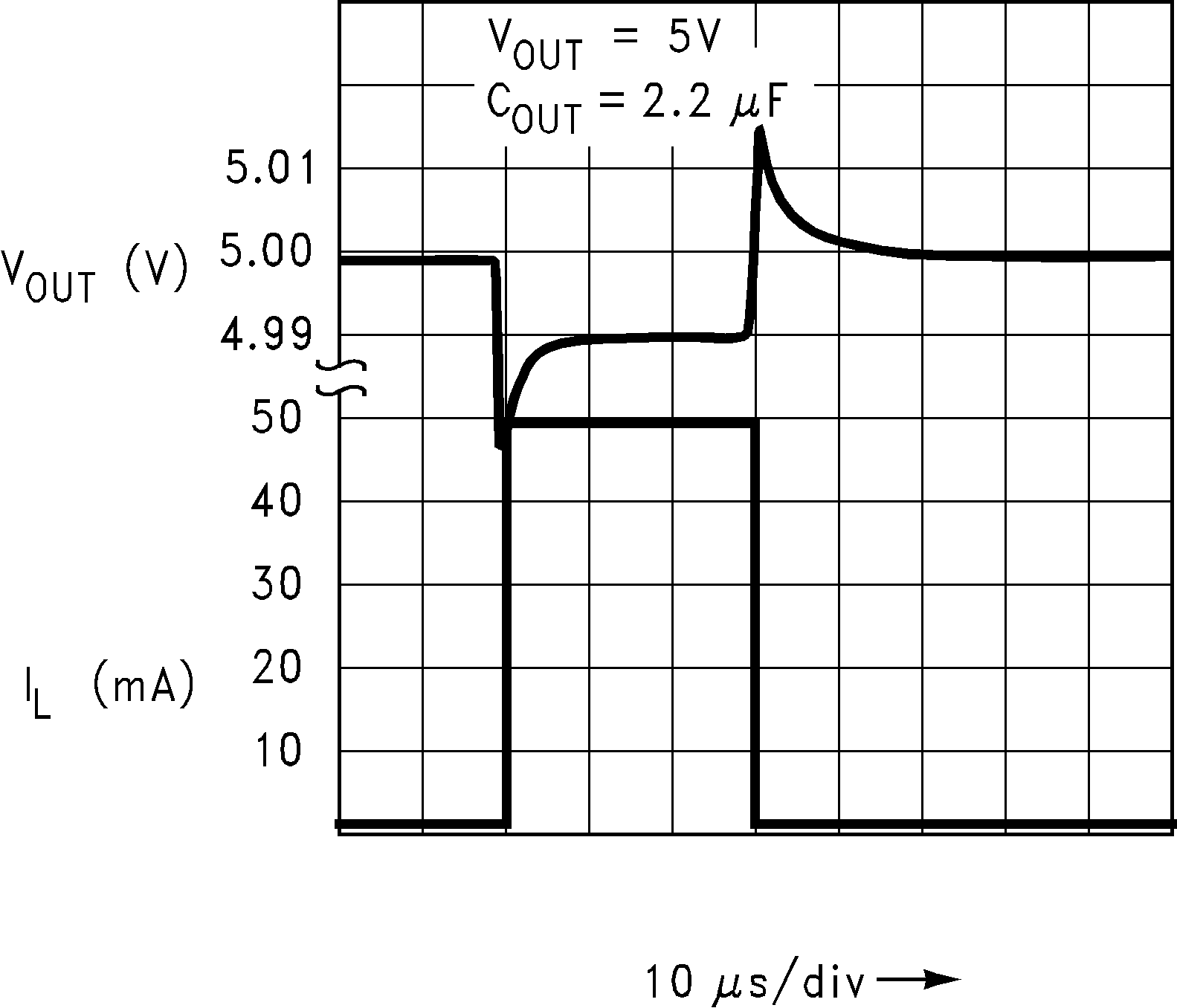

| dI/dt = 1 A/μs |
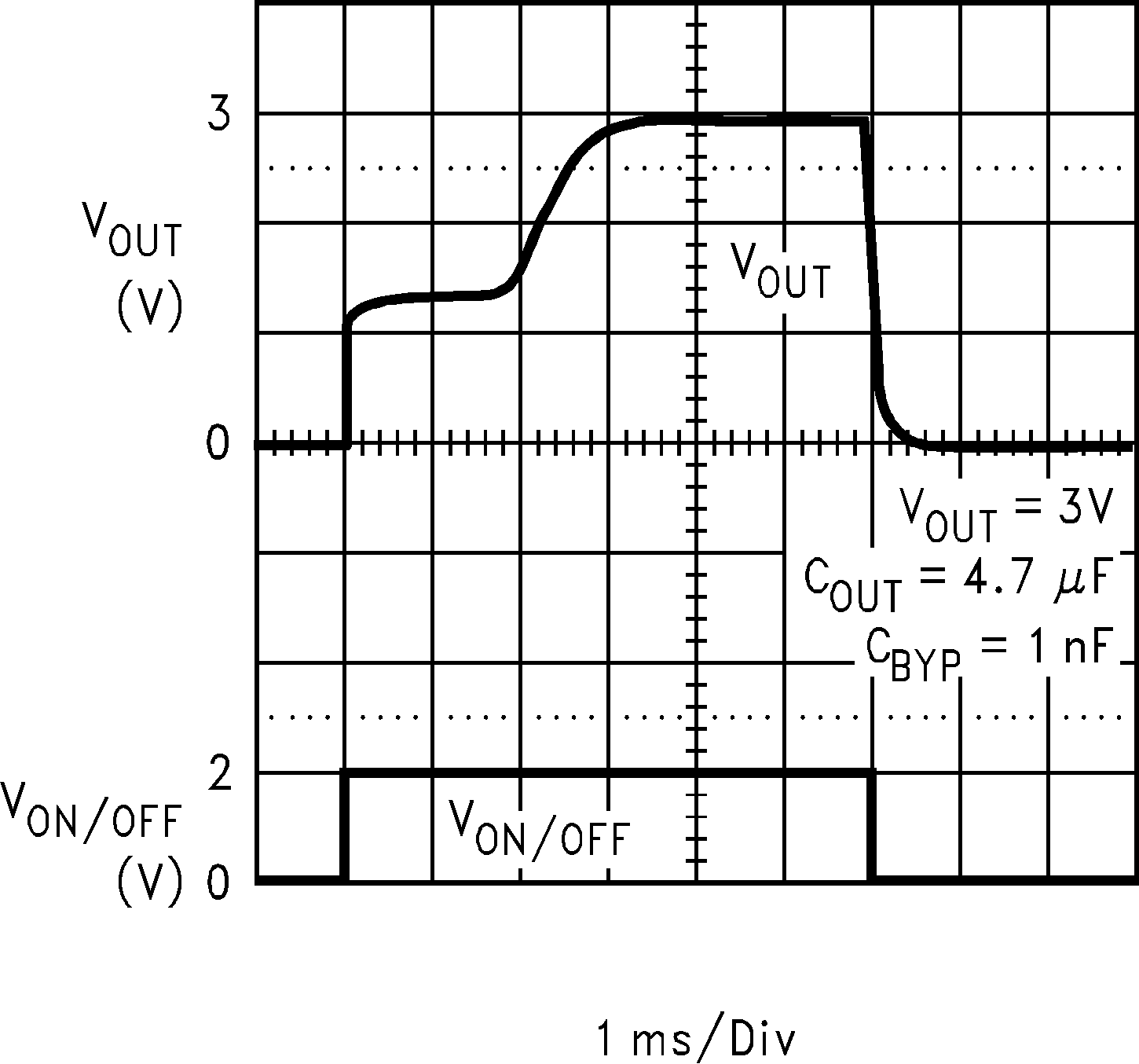

| Cbyp = 0 nF |

| Cbyp = 1 nF |